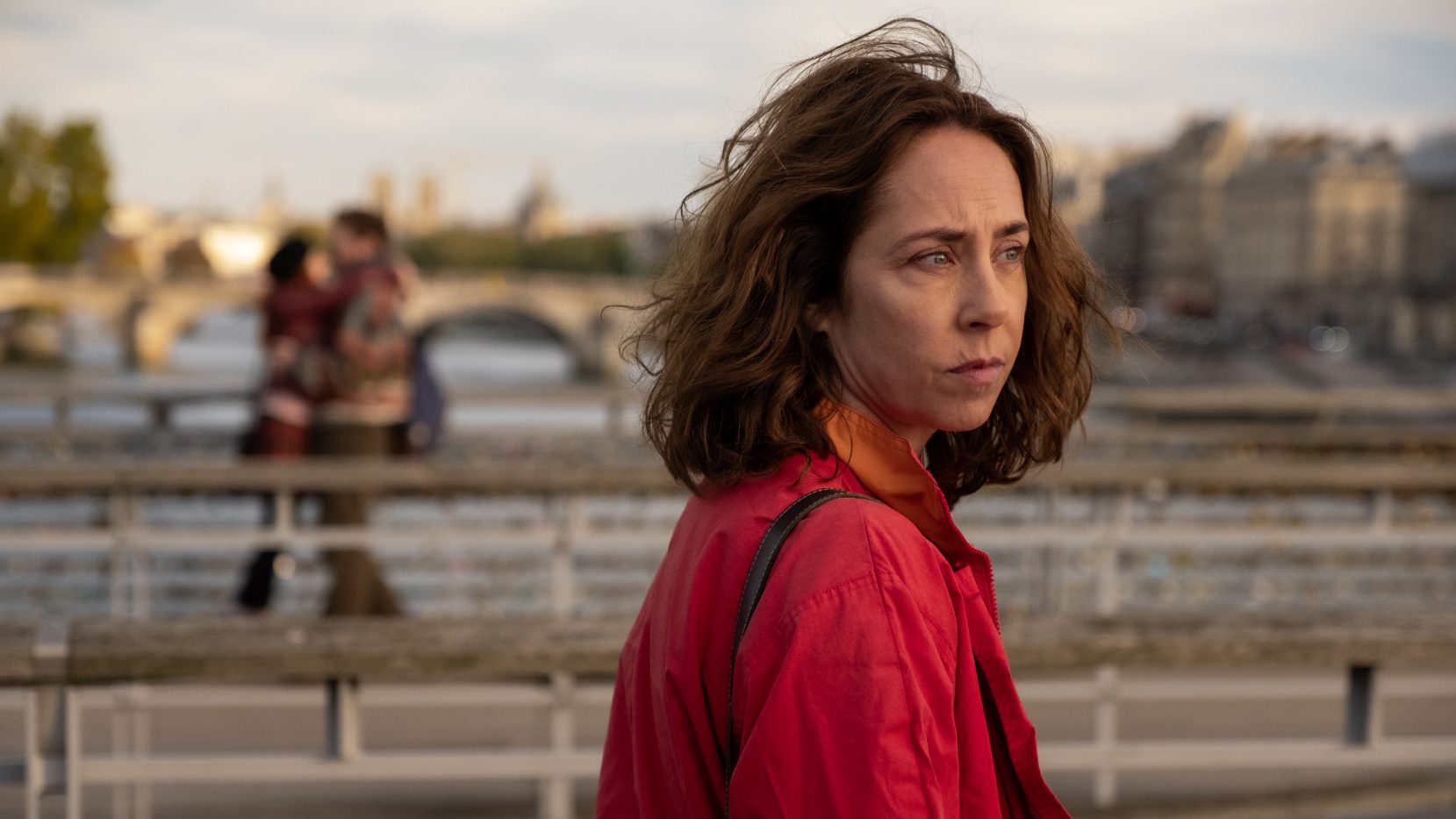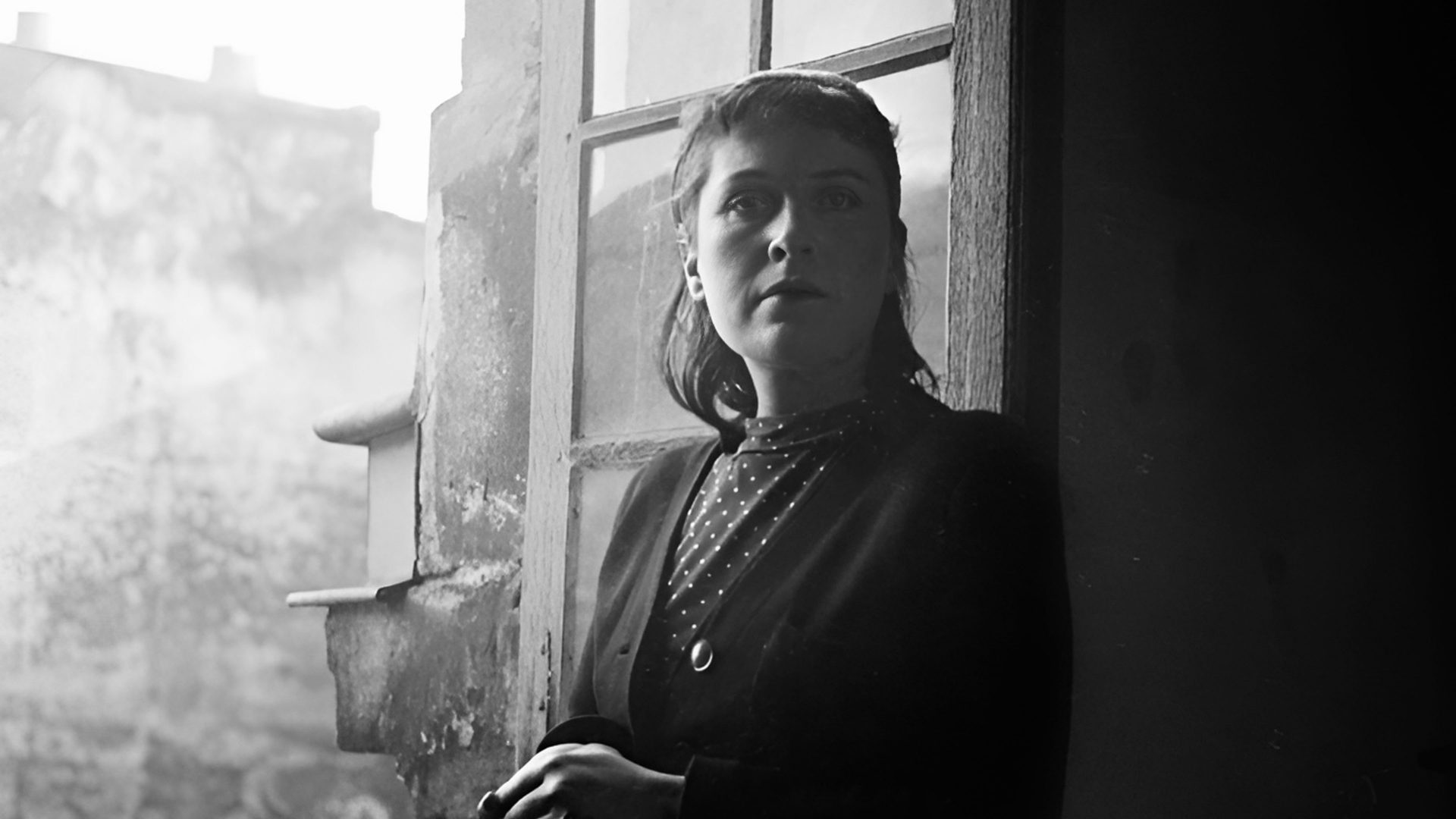Even on one of the warmest days of the year, I’m almost disappointed Sofie Gråbøl is not sporting the jumper that made her famous.
I’m talking about the Faroe Islands boatman’s sweater that her character in The Killing, Sarah Lund, made so hip and hygge when the prototypical Nordic noir detective series gripped Europe, starting back in 2007 on Danish TV before becoming an obsession with viewers in the UK, Germany, the Netherlands, Brazil and the US, across three series, between 2011 and 2014.
The jumper itself became the subject of a lawsuit in 2014, when the original’s makers, Gudrun & Gudrun, a knitwear label founded on the Danish-ruled Faroes, were told they could not prevent other companies copying their designs because they were, ruled the court, based on patterns that were centuries old.
Gråbøl smiles. “It warms my heart that people still talk about my character,” she says, not wishing to be drawn on the jumper, other than to say it was part of her approach to creating the character, something she does with every role she plays, in a distinguished and varied career.
“I picked the jumper because it said something about Sarah Lund, that she was a different kind of detective, that she didn’t wear suits or she didn’t use her sexuality in her work. She was a tough person in her workplace, dealing with grim situations, but this jumper suggested there was another story to her, something softer.”
And though she admits to still having “maybe one or two” of the jumpers in her wardrobe, she’s keen to welcome in the summer light that streams in through the windows of her Copenhagen flat. England were about to play Denmark at the Euros, but she wasn’t going to watch.
“I’m obsessed by the Tour de France,” she says. “I love every stage of that, glued to it. But football, I just can’t get interested.
“I live right by the big stadium here (the Parken Stadium, home to the national team and FC Copenhagen) and the crowds come by my window and they sing and grunt and they piss in our flower beds, so I’m not a fan…”
If Gråbøl has a sense of national pride, she finds it in the success of the Danish creative industry, a community she feels very much part of and to which her triumphs with The Killing gave a boost of confidence and created an appetite and ambition for series such as Borgen and The Bridge. Then there’s her own most recent series, the gritty drama Prisoner, in which she plays Miriam, a prison officer who wears a thick black tie with her uniform – not sure this outfit will catch on quite as much as the jumper, but you never know: Gråbøl wears it all with a great, determined style.
And then there are the English-language spin-offs that include Fortitude (in which Gråbøl had a part) and even the recent series of True Detective: Night Country, starring a Lund-influenced Jodie Foster, which, although set in Alaska, was mainly filmed in Iceland. Listening to Gråbøl and seeing her on my Zoom screen, it occurs to me that there really is something of Foster about her and her approach to performances.
“I’m honoured the success of The Killing looks to have opened so many doors, but to be honest there have been many movements or waves over the last 20, 30 years,” she says, recalling the excitement of the Lars von Trier-led Dogme films that revolutionised the European indie film-making scene in 1995.
She herself featured in a Dogme film, in Mifune (1998). Hers is a remarkably long career – she also featured in Bille August’s 1988 Palme d’Or and Oscar winner Pelle the Conqueror – but she has little hesitation in saying what her latest film, Rose, means to her.
“It’s the role of a lifetime,” she states. “It was a huge and rare challenge for me, even after so many roles, because it was also a life experience.” I know she’s selling the movie, but it’s a bold statement and she’s sticking by it.
In the film, Gråbøl plays Inger, a woman with schizophrenia, who is let out of her care home for a coach trip to Paris with her sister and brother-in-law, to revisit the scene of a very formative year she spent as a student. Back then, she learned French and immersed herself in the city, but also suffered heartbreak through a love affair with a married man, an episode that led to a breakdown to which her family partly attribute Inger’s current mental health issues.
The film is directed by Niels Arden Oplev, best known for the film version of another huge Scandinavian success story, The Girl With the Dragon Tattoo, a thriller that became one of the highest-grossing films in European history. Rose is a very different film told at a very different pace. It’s also a very personal film for the director which he has based on the story of his sisters, and a trip to Paris.
“This is the first time I’ve ever played a real-life person,” says Gråbøl. “So the chance to meet someone and get to know them was very precious, but also a big responsibility because she was so personal to the director. And also, I didn’t want to do just another mentally ill character on screen, I wanted to change the perception of such characters and how to play them, so that the stigma of mental illness in film and on TV is pushed aside and you see a whole person, not their diagnosis.”
The film is really the story of a busload of Danish characters who are all affected by being on the same package trip as Inger, all confronted by her tendency to say inappropriate things, or to insist on the burial of roadkill. She befriends a 13-year-old boy who’s on the trip with his uptight headteacher father (played by another Danish staple actor, the excellent Søren Malling) and, in a memorable scene, the kid speeds her through the palace of Versailles in a wheelchair.
In certain scenes, I was reminded of Lars von Trier’s key 1998 Dogme film Idioten, in which a group pretend to have mental and physical disabilities, but Gråbøl tells me I’m very wrong to draw such parallels.
“Lars was challenging boundaries with that film, of course, but Inger is not there to provoke. It’s up to the other characters to accept her, to overcome their own prejudices and instincts, the ones we all have when we meet someone who’s a bit different, at the bus stop or in a waiting room, and we have the urge to withdraw, to have some fear, but that’s our problem, isn’t it? To be cut off from understanding other people’s experiences.
“What we should be feeling is embarrassment at our lack of knowledge, our inability to understand how others might see the world differently from us. There’s not necessarily always one way to be in the world, you know?”
Gråbøl’s skill as an actor is to understand exactly this, to get under the skin of multiple characters. When I suggest that acting as a job has something schizophrenic about it, she is again quick to counter. “Nope, nope, not at all,” she ticks me off. “Acting is a profession and we are not schizophrenic – this is a phrase we have all come to use too lazily, but acting is about finding a connection to a feeling, and when you have been doing this as long as I have, you discover that everything is relatable, there’s always a way to identify with the character you have on the page in front of you. The job is to find that common emotional ground, but it is not schizophrenic. Not at all.”
Even while contradicting and correcting, Gråbøl remains smiling and generous. She is also happy to concede ground. When I ask if she was friends with the actress who plays her sister in the film, Lene Maria Christensen, she starts: “You think that Denmark is so small that we all know each other, do you?”
Just as I’m about to apologise, again, she admits: “Well, yes, I did know her, actually, but we hadn’t worked together yet, but Søren Malling, who plays the headteacher, he was in The Killing with me, and he’s always excellent. So, yes, probably. We do all know each other. It makes for a supportive industry, I suppose, so one success does benefit another.”
For Gråbøl, being successful in Denmark is the most important marker. She is such a regular on TV and in theatre that she feels if she can convince her home audience – who know her work so well – that each time she’s a different character, then that is some kind of achievement.
“Some audiences just don’t want to see you in a different role, so if I can get the Danes to forget it’s me, then I’m doing something right. Rose was a big hit in Denmark, for example, and I’m very proud of that.
“Then, if we are lucky, the international audience can adapt to that – I don’t want them to expect Sarah Lund each time. I like to surprise. That is my job. Like Inger on the bus in this movie, if people can see something a bit different, then it makes the trip that much more memorable.”
Rose is in UK cinemas now




